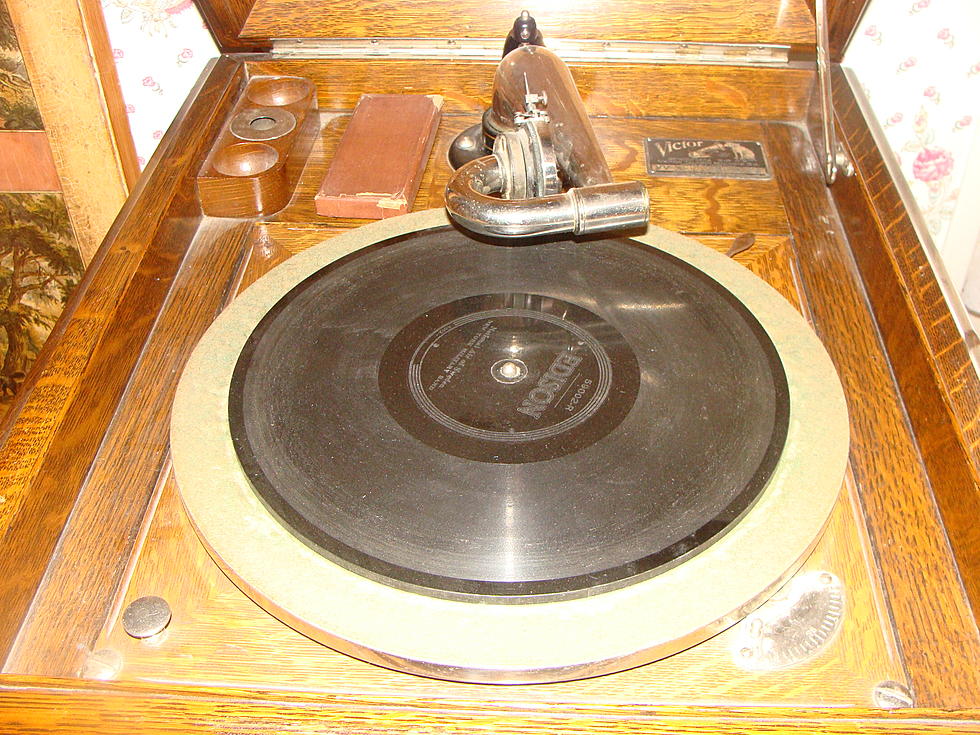The Day Jimi Hendrix Played His Final Show With Band of Gypsys
"That's what happens when Earth f---s with space. Never forget that. That's what happens." Jimi Hendrix played plenty of memorable gigs throughout his too-brief career, but none was more infamous than his appearance at the Winter Festival for Peace, held on Jan. 28, 1970, at Madison Square Garden. Lasting a mere song and a half, Hendrix's set culminated with the above admonishment to the crowd -- and led to the immediate dissolution of his new group Band of Gypsys.
Hendrix's Madison Square Garden meltdown capped a turbulent year that had already seen the breakup of his previous band, the Experience, his legendary appearance at Woodstock and the speedy live recording of the Band of Gypsys LP, an effort partly tossed together to satisfy the terms of a prior legal dispute. Working alongside bassist Billy Cox and drummer Buddy Miles, Hendrix took his sound into previously uncharted territory, blending rock with R&B, funk and jazz while continuing to take impossible-sounding strides forward in terms of his own guitar technique.
The seeds of trouble were sown for the group early on, however. While Miles' incredible talent helped Hendrix cover new musical ground, the two also butted heads regularly; as Cox later suggested, the trio's short-lived existence was partly owed to the fact that Miles refused to "render unto Caesar the things which are Caesar's" -- in other words, to yield the spotlight, and the creative reins, to Hendrix.
It's also been suggested that Hendrix's manager, Michael Jeffery, was less than supportive of the Band of Gypsys, either because he wanted the mercurial guitarist to reunite the Experience or because he had personal issues with the idea of an all-black power trio. Either way, although the Band of Gypsys record did extremely well on the charts after its March 25, 1970, release, Hendrix was never happy with the results.
"I wasn’t too satisfied with the Band of Gypsys album. If it had been up to me I would have never put it out," Hendrix later admitted. "From a musician’s point of view, it was not a good recording and I was out of tune on a few things. Not enough preparation went into it and it came out a bit ‘grizzly’ -- we all felt shaky. The thing was, we owed the record company an album and they were pushing us -- so here it is."
Beset by personality conflicts and contractual hassles, Hendrix had also been dealing with the stress of his Canadian drug arrest and subsequent trial in 1969. Whether any or all of these woes factored into the Gypsys' train wreck at Madison Square Garden on Jan. 28, it was clear to those in attendance -- and Hendrix's friends backstage -- that something wasn't right.
"When I saw him, it gave me chills," recalled guitarist Johnny Winter. "It was the most horrible thing I'd ever seen. He came in with this entourage of people, and it was like he was already dead. He just walked in -- and even though Jimi and I weren't the greatest of friends, we always talked, always -- and he came in with his head down, sat on the couch alone, and put his head in his hands. He didn't say a word to anybody, and no one spoke to him. He didn't move until it was time for the show."
Still, if Hendrix appeared disconnected from reality before and during the set, he seemed almost unburdened after it all fell apart. Producer Alan Douglas claimed he saw Hendrix fall off the stage apron after he unplugged and exited, adding, "At first I thought he was hurt, but he wasn't. I then ran backstage to the dressing room to see if in fact he was okay. There he was, sitting playing the guitar and smiling."
Hendrix seemed in even better spirits a few days after the gig, telling Rolling Stone that as he saw it, the Madison Square Garden disaster was "like the best ending I could possibly have come up with" for Band of Gypsys. "It was just … going through head changes is what it was. I couldn’t really tell. I was very tired. You know, sometimes there’s a lot of things that add up in your head about this or that and they might hit you at a very peculiar time, which happened to be at a peace rally. Here I’d been fighting the biggest war I ever fought. In my life. Inside, you know? And, like, that wasn’t the place to do it."
By February, Hendrix had consented to partially reunite the Experience, bringing back drummer Mitch Mitchell but sticking with Cox over bassist Noel Redding. The trio toured, and Hendrix worked as time allowed on songs for an upcoming LP, but the untapped potential left behind by Band of Gypsys set the sad template for the remainder of his career; on Sept. 18, 1970, at the age of 27, he died.
Even all these years later, the Band of Gypsys bust-up remains a target of speculation for fans, and some continue to cling to any number of theories behind the project's disintegration. At the time, however, Hendrix shrugged it off as little more than a temporary detour with a pair of "out of sight" musicians. "The reason for the record was to fulfill an old record contract," he insisted dismissively. "We won’t be back together again."
See Jimi Hendrix and Other Rockers in the Top 100 Albums of the '60s
More From KQCL Power 96










